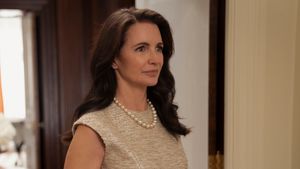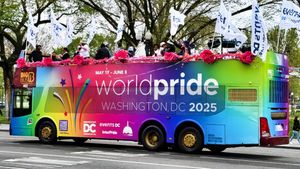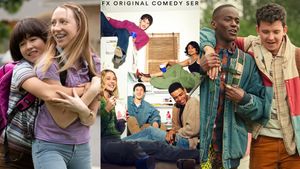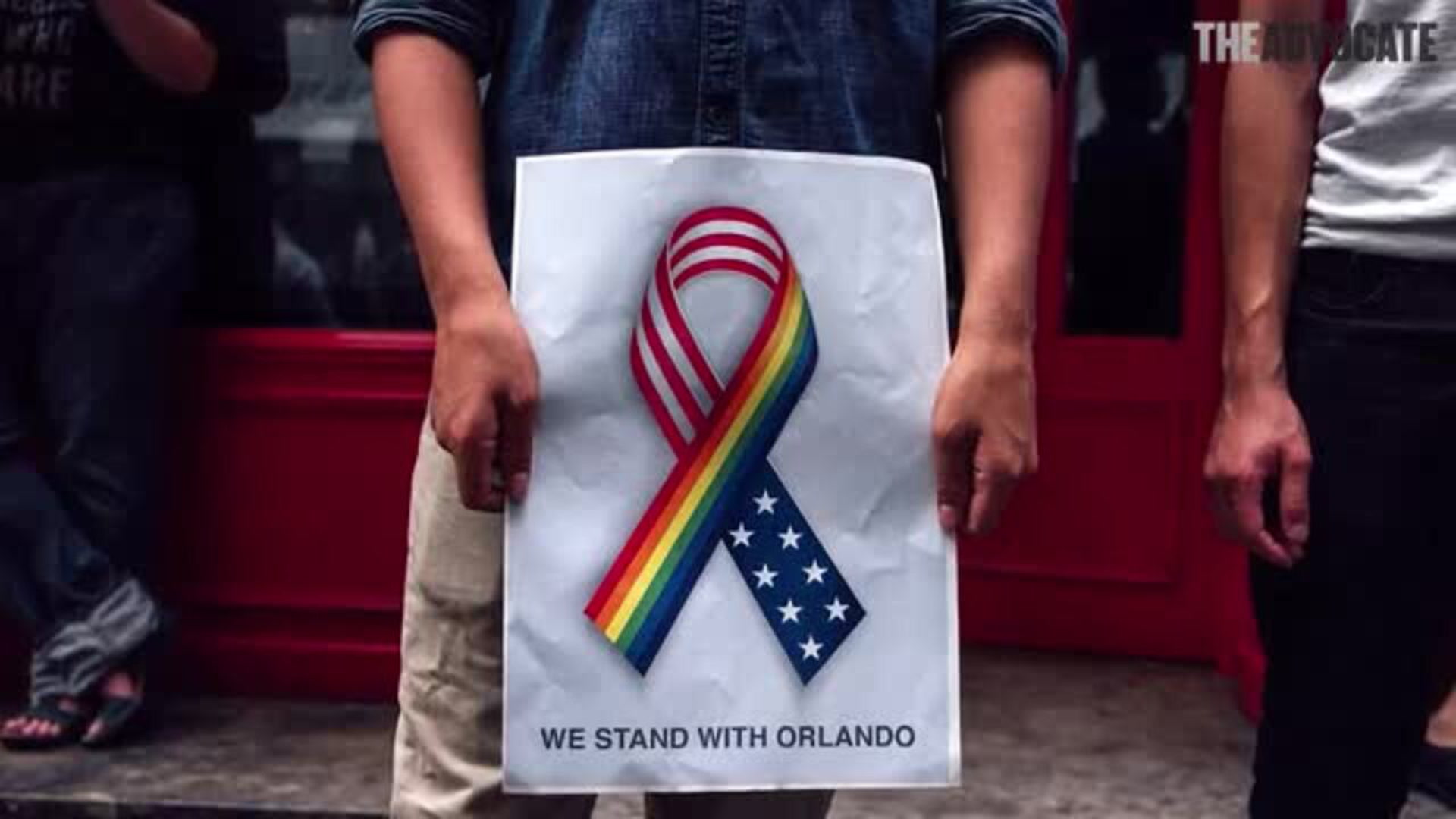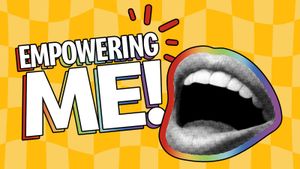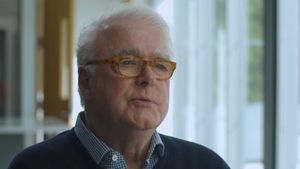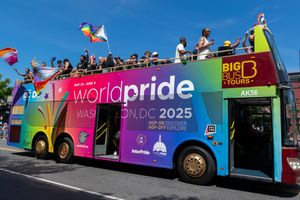Three hours, 13 minutes. That's how long the Pulse nightclub shooting lasted--from 2:02 a.m., when Orlando police received the first reports of shots fired, to 5:15 a.m., when a SWAT team killed shooter Omar Mateen.
During that time--the time it takes to watch a movie or sit down to dinner--49 people were killed and an additional 53 were injured.
Most of the clubgoers were killed or wounded in the first 20 minutes--including Angel Colon, who was shot multiple times in his leg and side.
"The first shots," he says, "they were super loud--and super hot. We dropped our drinks, and all we could hear was pop pop pop pop."
Colon evacuated the club early in the standoff between Mateen and Orlando police--but only after Mateen came out to the dance floor and fired once again on the rows of bodies. Colon called over an officer who was 15 feet away. "Please come get me," he said.
That night changed not only Colon's life but the lives of LGBTs everywhere. The survivors of Pulse have become unlikely advocates for a community grappling with this tragedy--the worst single-person mass shooting and the deadliest violent act against LGBT people in U.S. history.
(RELATED: 2016 Person of the Year Finalists)
The next day, Orlando was a city in shock. No one could have imagined the tragedy that had rocked downtown. Police barricaded the corner of West Grant Street and South Orange Avenue. A convoy of news vans waited outside Orlando Regional Medical Center, where Colon was recovering.
"Orlando is big, but our community is very small," Colon says. "All the gay clubs are so close to each other--Pulse, Parliament House, Southern Nights. Who would think that someone would attack Pulse on a random Saturday when nothing big is happening anyway?"

Nadine Smith (pictured), co-founder and CEO of Equality Florida, was camping with her family at Disney World. Her phone would not stop buzzing. The first text she saw read, "Is this a hoax?"
"My heart just stopped," she says. "Everybody knows Pulse. Everything moved in slow motion. As awful as you thought it was, it just kept getting worse."
Heartbroken Orlando men and women lined up by the thousands outside OneBlood donation facilities--as many as 28,000, the largest turnout of blood donors since the September 11 terrorist attacks. Queer men joined the ranks--the same men who might have been at Pulse that night--only to realize they were barred from donating. The Food and Drug Administration still enforced a one-year celibacy requirement against gay and bisexual blood donors. Suddenly the discriminatory policy, newly highlighted in news stories and on social media, became visible to many straight people in ways that it hadn't been before.
While the donors waited, Colon appeared at a hospital press conference. "I was all over the news," he says. "It was overwhelming--interview after interview after interview. Once I heard from the reporters, from other survivors, I learned more about that night than even I knew."
The survivors of Pulse were thrust into unaccustomed fame. Now they stared down the camera lenses of a curious nation and world wanting answers.
"The survivors, they're people like me," Colon says. "We don't care what the world thinks about us, because we went through this all together. We were stuck in that building together. We may be on TV and our faces may be all over the place, but we know we need to stick together."
A week after the attack, the news vans started to leave Orlando. But the city still mourned: A vigil at Lake Eola drew a crowd of 50,000. On social media, images of rainbow lights and flags from One World Trade Center in New York and the Castro in San Francisco were shared, along with images of vigils and tributes from dozens of other sites around the world--Chicago, Miami, Paris, London, Jerusalem, Tel Aviv, Wellington, Brisbane, Sydney, Berlin, Hong Kong, Mexico City, Toronto, among others. As the world looked on, the survivors began the long road to recovery while discovering their own voices in the painful aftermath of the shooting.

As Colon began learning to walk again, Democratic representatives and senators were sitting down on the floor of the House Representatives. Led by a civil rights icon, Georgia Rep. John Lewis (pictured), they staged an unprecedented, historical, 25-hour sit-in to bring gun-control measures to the floor.
Months later, Christine Leinonen, whose son Christopher died at Pulse, spoke about the deadly weapon when she took the stage during the summer's Democratic National Convention. "The weapon that murdered my son fires 30 rounds in one minute," she said. "I'm glad commonsense gun policy was in place the day Christopher was born, but where was that common sense the day he died?"
The senators and representatives who held the sit-in successfully pressured Congress into voting once more on the gun-control measures that had failed in 2012 and 2015. But those measures--including keeping people on the FBI's "no fly" list from buying guns--failed, again.
In September, Colon traveled to Washington, D.C., for the first time. He accompanied the Brady campaign, which advocates against gun violence, and met with senators--including conservative Florida senator Marco Rubio--to share his story.
"I was a wreck," Colon says. "I'm not a political person at all. But I said to myself, 'Screw it. I'm going to share my story, and if I don't have an answer to your question, I don't have an answer.' I shared the pain I went through, my family went through. I don't want to see another family go through this."
Smith says she can't stand living with the fear that has grown since Pulse, the suspicion that anyone who could wish her harm has the firepower to do so. "Now I have to worry about the woman in the grocery store with her purse open, or the guy reaching for his wallet," she says. "We don't have to live in a society where every encounter is a lethal one."
The Pulse survivors embody the best of the LGBT community, despite how some in the community have reacted.
As the rhetoric of 2016's presidential race coarsened, xenophobes and their preferred candidate, Donald Trump, stoked distrust of Muslim Americans among LGBT voters and pointed to Pulse's attacker, who praised the Islamic State, as a rallying point.
"In the midst of horror, it is easy to become the thing you hate," Nadine Smith says. "But I've been proud of the fact our community has overwhelmingly resisted that." In fact, Muslim and LGBT groups looked to each other, resisting the opportunity to demonize, and instead offered support at joint rallies.
Faced with so much wrong in the world, the survivors of Pulse carry on. Marked as they are by those three hours in that club--once the sight of so many happy memories surrounded by friends--they are not defined by what happened there.
"We're going to be OK," Colon says. "We're going to move on."
As 2016 ends, the victims of the Pulse shooting face the same danger that faces survivors of every other mass shooting in America: being forgotten. But queer people do not forget. The vigils may wane, the debates may fizzle, the rainbow filters on profile pics may be swapped out, but the survivors of Pulse will not stop fighting for a better, safer community.
Pulse is not a footnote in America's struggle with gun violence; it's the opening of a new chapter, one where enters the fire and resolve of the LGBT community. In the past few generations, our communities have galvanized to battle a plague and to secure marriage equality, and fight even now to secure full civil rights--all steps forward that few in earlier generations had expected until they happened.
America will invariably move on to the next gun-related tragedy, but the survivors of Pulse are here. And they will be heard for years to come.






















